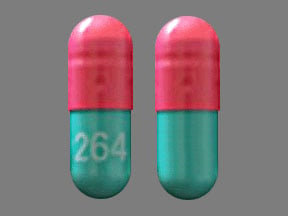
Prevacid Coupons & Savings Card – Discount Prices from $8.54
Brand for: Lansoprazole
My prescription
Edit
15MG, Lansoprazole (30 Capsule Delayed Releases)
Select pharmacy

CVS
$20.19
COUPON PRICE
Rite Aid
$8.54
COUPON PRICE
Walmart
$8.83
COUPON PRICE
Walgreens
$15.03
COUPON PRICE
Albertsons
$16.26
COUPON PRICEPrevacid savings card
Show this card to your pharmacist
Rite Aid
$8.54
BIN
ID
PCN
GRP
019876
LHC66276D6
CHIPPO
LHX
Powered by
Related proton pump inhibitors prescriptions
More prescriptions for heartburn
Related proton pump inhibitors prescriptions
More prescriptions for heartburn
Price history for Lansoprazole (generic)
30, 15MG
Average retail price for Lansoprazole
Average SaveHealth price for Lansoprazole
Our price history data is based on aggregated prescription data collected from participating pharmacies in America. Our prescription data updates daily to reflect the latest price changes. If you notice a missing data point, it means there wasn't sufficient data available to generate a monetary value for that date.
Prevacid dosage forms
| Dosage | Quantity | Price from | Per unit |
|---|---|---|---|
| 15MG | 30 Capsule Delayed Releases | $8.54 | $0.28 |
| 30MG | 30 Capsule Delayed Releases | $6.01 | $0.20 |
Prevacid Warnings
This medication comes with several important safety warnings that need careful consideration. You should discuss any concerns with your healthcare provider to ensure safe use.
Risk of Masking Serious Conditions: Persistent heartburn could indicate stomach cancer. If heartburn worsens or returns after taking lansoprazole (Prevacid), or if you experience poor appetite, unexplained weight loss, or weakness, contact your healthcare provider to rule out more serious medical issues.
Sudden Kidney Problems: Some users of PPIs, including lansoprazole (Prevacid), have experienced sudden kidney issues at any point during treatment. Symptoms such as changes in urination, nausea, weakness, fever, rash, or joint pain should be discussed with your provider.
Severe Infectious Diarrhea: Lansoprazole (Prevacid) may increase the risk of Clostridioides difficile (C. diff) infection, leading to severe diarrhea. This risk is heightened for individuals over 65, those recently hospitalized or in nursing homes, or with weakened immune systems. Use the lowest effective dose for the shortest time, and contact your provider if you experience severe diarrhea, fever, abdominal pain, or nausea.
Bone Fractures: Long-term or high-dose use of lansoprazole (Prevacid) can increase fracture risks in the hip, wrist, or spine, especially if taken for more than a year. Discuss with your provider if you have a history of fractures or osteoporosis.
Skin Reactions: Rare but serious skin reactions such as Stevens-Johnson syndrome (SJS) or toxic epidermal necrolysis (TEN) have been reported. Seek immediate medical attention if you notice symptoms like fever, body aches, rash, or blistering.
Lupus: Some individuals have developed or experienced worsening lupus symptoms while on PPIs like lansoprazole (Prevacid). Joint pain or rash symptoms should prompt you to discontinue the medication and consult your provider.
Low Vitamin B12 and Magnesium Levels: Long-term use can lead to deficiencies in vitamin B12 and magnesium. If you have been using this medication for over 3 years or notice symptoms such as dizziness, muscle weakness, or tingling, contact your provider.
Drug Interactions: Certain drugs may affect lansoprazole (Prevacid) levels in your body, altering its effectiveness and the risk of side effects. Avoid medications like St. John’s Wort and rifampin while taking this medication.
Phenylketonuria (PKU) Caution: Orally disintegrating tablets contain phenylalanine, which can be harmful to individuals with PKU. Consider using the capsule form, which is safer for those with PKU, and consult your provider if unsure.
Contraindications:
- Do not use if you have a history of allergy to PPIs.
- Avoid if you are taking Edurant (rilpivirine) or rilpivirine-containing medications (e.g., Complera).
In case of an overdose, seek emergency medical attention promptly. Always adhere to your healthcare provider’s instructions for safe use.
Prevacid Side Effects
When taking this medication, some individuals may experience mild side effects such as diarrhea, abdominal pain, nausea, or constipation. These are generally not serious and often resolve on their own. However, if these symptoms persist or worsen, it is advisable to consult your healthcare provider for further guidance.
More serious side effects, although rare, require prompt medical attention. These can include severe stomach pain or diarrhea, which might indicate a bacterial infection called C. difficile. Symptoms like joint pain, a skin rash exacerbated by sunlight, or changes in urination could be signs of lupus or kidney problems, respectively. Additionally, be aware of symptoms signaling a low magnesium level, such as muscle spasms, irregular heartbeat, or seizures.
Long-term use of this medication, particularly proton pump inhibitors like lansoprazole, may lead to vitamin B-12 deficiency, manifesting as unusual weakness, a sore tongue, or numbness in the hands and feet. In rare cases, a serious allergic reaction may occur, presenting with fever, swollen lymph nodes, or difficulty breathing. Immediate medical attention is crucial if these severe symptoms arise. Always stay vigilant and report any unusual side effects to your healthcare provider for appropriate management.
Prevacid Interactions
When taking lansoprazole, it is important to be aware of potential interactions with other medications. Specifically, avoid using Methotrexate, especially in high doses, as it may interact with lansoprazole. Lansoprazole reduces stomach acid, which can affect the absorption and effectiveness of certain medications such as Ampicillin, Atazanavir, Erlotinib, levoketoconazole, nelfinavir, pazopanib, rilpivirine, sparsentan, and some azole antifungals like Itraconazole, Ketoconazole, and Posaconazole. Additionally, lansoprazole is similar to Dexlansoprazole, so do not use them together.
Lansoprazole may also impact the accuracy of certain lab tests, so inform your healthcare providers and lab personnel about its use.
Moreover, lansoprazole should not be combined with rilpivirine. With some medications, such as acalabrutinib, amphetamine, atazanavir, and others listed, its use is usually not recommended unless necessary. In such cases, your doctor might adjust the dosage or frequency of either medication. Additionally, lansoprazole may increase the risk of side effects with medications like acenocoumarol, dicumarol, Levothyroxine, phenprocoumon, Tacrolimus, and Warfarin, so your doctor may need to monitor and adjust treatment accordingly. Always inform your doctor and pharmacist about all medications and supplements you are taking to avoid unwanted interactions.
Which one is better, Prevacid or Omeprazole?
The choice between Prevacid (lansoprazole) and Omeprazole depends on the individual's specific medical condition, response to treatment, and any potential side effects. Both medications are proton pump inhibitors (PPIs) used to treat similar conditions such as gastroesophageal reflux disease (GERD) and ulcers. A healthcare provider can determine which medication is more suitable based on the patient's medical history and symptoms.
What is the most common side effect of lansoprazole?
The most common side effect of lansoprazole is headache.
Can you take Prevacid long term?
Long-term use of Prevacid (lansoprazole) should be done under the guidance of a healthcare provider. While it is generally safe for many individuals, prolonged use may be associated with certain risks, such as vitamin B12 deficiency, bone fractures, and kidney issues. It is important to have regular medical evaluations to monitor for potential side effects and to determine if continued use is necessary.
What foods should you avoid while taking lansoprazole?
While taking lansoprazole, it is generally advisable to avoid foods and beverages that can increase stomach acid production or irritate the stomach lining. These include:- Spicy foods- Acidic foods like citrus fruits and tomatoes- Caffeinated beverages such as coffee and tea- Carbonated drinks- AlcoholAdditionally, it is recommended to avoid large, heavy meals and to eat smaller, more frequent meals instead. This can help reduce symptoms and improve the effectiveness of the medication.
What happens if you take lansoprazole every day?
Taking lansoprazole every day as prescribed by a healthcare provider can help manage conditions like gastroesophageal reflux disease (GERD), stomach ulcers, and other acid-related disorders by reducing stomach acid production. Long-term use should be monitored by a healthcare professional, as it may lead to potential side effects such as vitamin B12 deficiency, magnesium deficiency, or an increased risk of bone fractures. Regular follow-ups with a healthcare provider are recommended to ensure safe and effective use.
